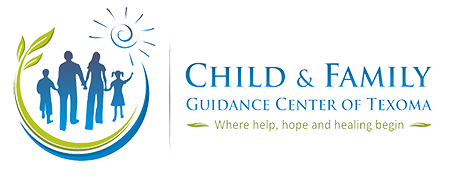Our clinical team is comprised of a highly skilled multi-disciplinary group of mental health professionals that has training in the following:
-
Trauma-Informed Care (TIC)
CFGC has adopted the Substance Abuse and Mental Health Services Administration (SAMSHA) recommended Trauma Informed Care (TIC) model due to the high number of children, parents/caregivers and family members in treatment who had been impacted by traumatic events in their lives.
In 2017, CFGC implemented the evidenced based, trauma-informed (TIC) model of care, embracing a culture of care that has permeated the organization from top to bottom. A required part of CFGC's onboarding process for all new hires is to complete SAMHSA's Trauma Informed Care Training Modules.
Providing care in a trauma-informed manner promotes positive health outcomes. A trauma-informed approach is defined by SAMHSA as a program, organization, or system that realizes the widespread impact of trauma and understands potential paths for recovery; recognizes the signs and symptoms of trauma in clients, families, staff, and others involved with the system; and responds by fully integrating knowledge about trauma into policies, procedures, and practices, and seeks to actively resist re-traumatization. (Source)
CFGC strives to continue to educate community leaders, law enforcement, schools, the medical community, and our collaborative partners about the role TIC plays in their unique environments.
-
Cognitive Behavioral Therapy (CBT)
Cognitive Behavioral Therapy (CBT) is an effective combination of talk therapy and behavioral therapy. CBT is a type of psychotherapy in which patients reframe negative thinking patterns into positive thoughts. Transforming one’s thoughts will ultimately result in positive actions and behaviors in difficult moments. (Source)
-
Trauma-Focused Cognitive Behavioral Therapy (TF-CBT)
TF-CBT is a form of cognitive behavioral therapy that addresses the specific emotional and mental health needs of children, adolescents, adult survivors, and families who are struggling to overcome the destructive effects of early trauma. Trauma-focused cognitive behavioral therapy is especially sensitive to the unique problems of youth with post-traumatic stress and mood disorders resulting from abuse, violence, or grief. Because the client is usually a child, TF-CBT often brings non-offending parents or other caregivers into treatment and incorporates principles of family therapy. (Source)
-
ARC Framework
The Attachment, Regulation and Competency (ARC) Framework is a flexible, components-based intervention developed for children and adolescents who have experienced complex trauma, along with their caregiving systems. ARC’s ultimate goal is support children, adolescents, and caregivers in effective engagement in the world, in a manner that is empowered and future-oriented, rather than focused on survival. (Source)
-
Child-Parent Relationship Training
Child-Parent Relationship Training is a combination of play therapy and behavioral therapy for young children and their parents or caregivers. The adults learn and practice new skills and techniques for relating to children with emotional or behavior problems, language issues, developmental disabilities, or mental health disorders. (Source)
-
Motivational Interviewing
Motivational interviewing is a counseling method that helps people resolve ambivalent feelings and insecurities to find the internal motivation they need to change their behavior. It is a practical, empathetic, and short-term process that takes into consideration how difficult it is to make life changes. (Source)
Types of Therapy Offered by CFGC
-
Play Therapy
Play has often been described as the language of children. Our specially trained play therapists help young children express their most difficult feelings. Some of the tools therapist use in the play therapy process are games, books, toys, anatomically correct dolls, sand tray therapy, and art therapy.
-
Individual Therapy for Youth and Adults
Sessions are designed to provide a safe, confidential, and non-judgmental environment that allows clients to talk about their struggles and challenges and work through past traumas to increase opportunities for positive change and success.
-
Family Therapy
Sessions are designed to help families improve familial relationships and enhance family functioning by allowing family members to address issues related to divorce, grief, abuse, single parenting, step parenting, blended families and more.
-
Couples Therapy
Sessions are designed to provide a safe environment where both individuals in the couple feel heard and are able to work through the presenting problem together.

